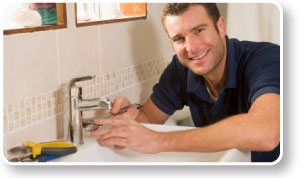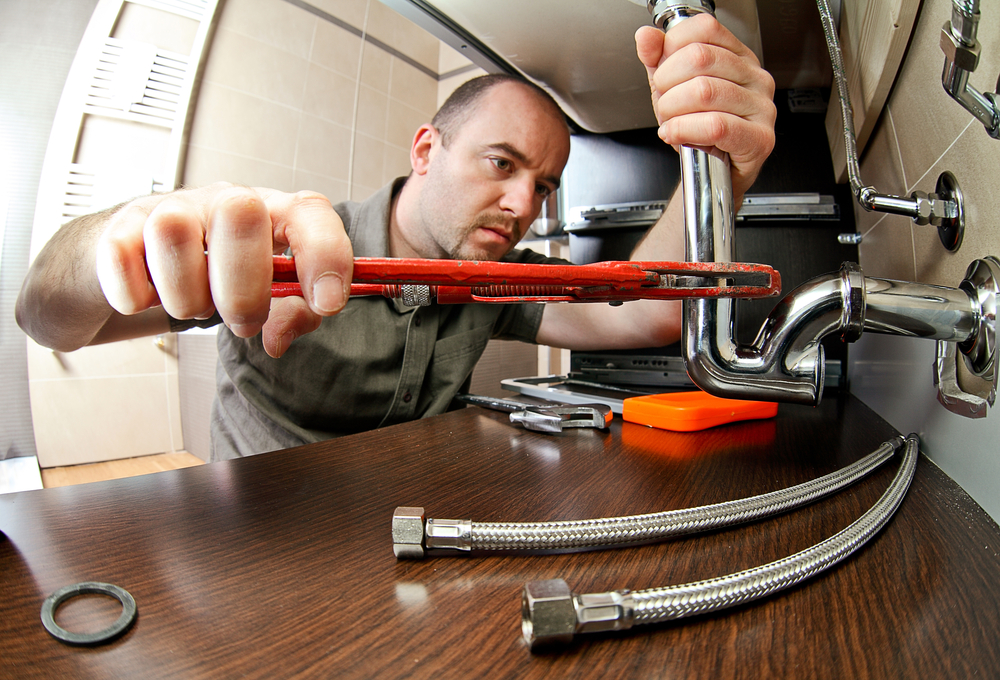Stop The 6 Things That May Be Damaging Your Home's Plumbing
Stop The 6 Things That May Be Damaging Your Home's Plumbing
Blog Article
We've stumbled upon this great article pertaining to Can Hard Water Ruin Your Appliances? listed below on the net and think it made good sense to share it with you over here.

The trick to durable devices, unsurprisingly, is proper maintenance. There's no hard and fast policy that can guarantee your plumbing appliances a long wear, however you can prevent unnecessary damage as well as fixings by avoiding poor plumbing behaviors.
You should quit doing these 6 points else you'll maintain calling your plumber over for minor faults.
Flushing whatever
Yes, your bathroom drain causes the drains, however that doesn't indicate you must discard simply anything down the tubes. Lots of 'flushable' products are really excellent obstruction beginners, for instance dental floss. Asides keeping apparent non-flushable materials like cables and plastics out of your toilet, you should additionally stay clear of flushing cotton swab, menstruation products, wipes, daipers and condoms down the commode drainpipe.
Putting oil in the sink
We know correctly getting rid of grease after a hearty meal is a pain. Yet just pouring it down the drain can do lasting harm to your pipelines. "The fat as well as grease can clog your drainpipe terribly enough to force you to call a plumber," clarifies Dawson. "Plumbing works best when it's well cared for-- not abused with oil."
Making use of way too much drain cleaner
Using a drainpipe cleaner more than once or twice a month is an indicator that something severe is going on within your pipelines. Now, instead of facing the major problem, you go for a quick fix; a carbonated drain cleaner. Rightfully, a drainpipe cleaner will deal with the clog, yet at what expense?
The chemicals in a drainpipe cleaner can hasten the deterioration of your pipelines. Add that to whatever underlying issue is causing the obstruction as well as you might have to a significant issue on your hands.
If you experience too many blockages, call your emergency plumber rather than making use of a drain cleaner.
Not washing meals prior to loading them right into the dishwasher
it's called a dish washer, however throwing in dishes, pots, and pans covered in huge food fragments can really create some major damages to the appliance, causing long-term issues down the line. "Home owners might have to obtain their dishwashing machine fixed regularly if they don't rinse their dishes before loading, or a minimum of get rid of larger food items," discusses Audrey Monell, owner of Forrest Anderson Plumbing and also Air Conditioner in Glendale, Arizona. "Food that gets stuck on meals creates the dishwasher to function harder, which can wear down components faster, leading to troubles."
DIYing everything
With plumbing, a stitch in time really does save nine. You can prevent a fullblown plumbing emergency by calling your plumber at the correct time.
You might have discovered a couple of plumbing hacks from your papa, but you should certainly recognize where to draw the line as well as call a professional. As an example, you may be able to take care of an obstruction yourself, however you should not attempt to change a pipeline. You can mismatch pipes or overtighten a bolt, creating more injury and damage than you believed. Calling a plumber is a secure and cost effective choice.
Not transforming your dishwasher hoses
One easy way to guarantee that you use your dish washer for years is to replace the hose pipe at least once in five years. This also gets cleaning machine hoses.
Over time, food particles, soap and oil can create obstructions within your pipelines. Changing them in a timely manner will certainly stop any kind of presure accumulate that can harm the interior functions of your dishwasher or washing machine.
An enhanced steel entwined pipe does an excellent task of prolonging your equipment's usage time.
No wintertime safety measures
Extreme climate condition misbehave for your pipes, especially if they're constructed from steel. You need to protect your exposed pipelines, and your water container, even if you have a hot water heater. You ought to also switch off your garden hose shutoff as well as any other external water networks. These channels are outlets for cold; you pipelines can start to freeze from outdoors if you don't.
WAYS TO AVOID DAMAGE TO YOUR PLUMBING SYSTEM
DON’T DUMP GREASE DOWN THE DRAIN
Grease is your plumbing’s worst enemy. After cooking bacon, it’s wise to find a better way to dispose of the grease. Grease is solid at room temperature and should never find its way to your pipes. Once the grease gets to the P-trap under your sink, it solidifies and becomes a sticky trap for debris and gunk. The blockage will eventually clog or slow your drain.
If the grease finds its way to the sewer, it will meet with all sorts of wastes and cause a blockage. If you pour grease down the drain accidentally, remove it with natural cleaners like baking soda and vinegar.
FLUSH YOUR GARBAGE DISPOSAL
A garbage can in the kitchen is unsightly, and that’s why people invest in garbage disposals. Your garbage disposal helps to reduce odors in the kitchen sink; it mutilates the food particles and enables them to drain easily. The disadvantage of having a garbage disposal is that it can harbor waste and odors.
Avoid putting items that cannot be broken down easily into the garbage disposal. Running cold water often helps to flush food particles from the trap to the waste pipes without damaging the moving parts.
If the moving parts start grinding, turn off the faucet and add one tablespoon of baking soda and one cup of vinegar. Turn on the garbage disposal for several minutes until the grinding stops. Then, flush it with hot water.
DON’T FLUSH UNWANTED MATERIALS IN THE TOILET
Be careful when flushing things down the toilet. Even food scraps don’t break down as easily, meaning that they can clog your sewer line. The last thing you want is to have a clogged toilet in your home.
If you drop something into the toilet, don’t assume that a flush will unclog it. Instead, try to remove it with a plunger. If the plunger does not work, use the plumber’s snake to remove it. Fill the toilet with water, and use the plumber’s snake to dislodge it. You might have to call a plumber if these methods don’t work.
FIX YOUR FAUCETS
Almost every homeowner has experienced a problem with dripping faucets. Besides being annoying, they can drip away gallons of water over time and cost you money. The internal washer becomes worn out and dislodged, especially if you live in a hard-water region.
Turn off the water supply and disassemble the faucet with a wrench. Tape the edges of your wrench with tape to avoid scratching your faucet. Remove the mineral deposits with vinegar and a scouring pad. If the ring and washers have become rusty and disfigured, be sure to replace them.
DEAL WITH LOW WATER PRESSURE
If water trickles from your faucets instead of gushing, you might have a deeper problem to deal with. Find out whether the problem has affected one appliance or the entire house. If your neighbors are not having the same problem, then you need to check the main water supply valve to ensure that it’s fully open.
In some cases, low water pressure means that most of your appliances and pipes are clogged. You need to disassemble the affected appliances and use vinegar to dissolve the mineral buildup.
WINTERIZE YOUR PIPES
When water freezes in the pipes, it expands significantly as it turns to ice. This expansion generates enormous pressure that causes damage to the pipes. Experts recommend winterizing your plumbing if your house will be vacant for a while. You don’t want to deal with all sorts of problems when you return home from holiday.
During the winter, it’s wise to prepare your plumbing for the freezing temperatures by insulating the pipes in the unheated areas. These include the crawlspaces, attic, and garage. Let the faucet drip as running a trickle through the pipes will prevent them from freezing.
Pipes freeze and burst at 32 degrees Fahrenheit, the freezing point for water. According to Energy Star, you should set your thermostat at 70 degrees Fahrenheit during the winter for optimum energy efficiency.
https://hufthomeservices.com/8-ways-to-avoid-damage-to-your-plumbing-system/

Do you like reading up on Don’t Let an Earthquake Damage Your Plumbing? Try to leave a short review further down. We would be interested to know your suggestions about this write up. In hopes that you visit us again soon. Are you aware of someone else who is looking into Don’t Let an Earthquake Damage Your Plumbing? Why not promote it. Thank you for going through it.
Schedule Appointment Report this page